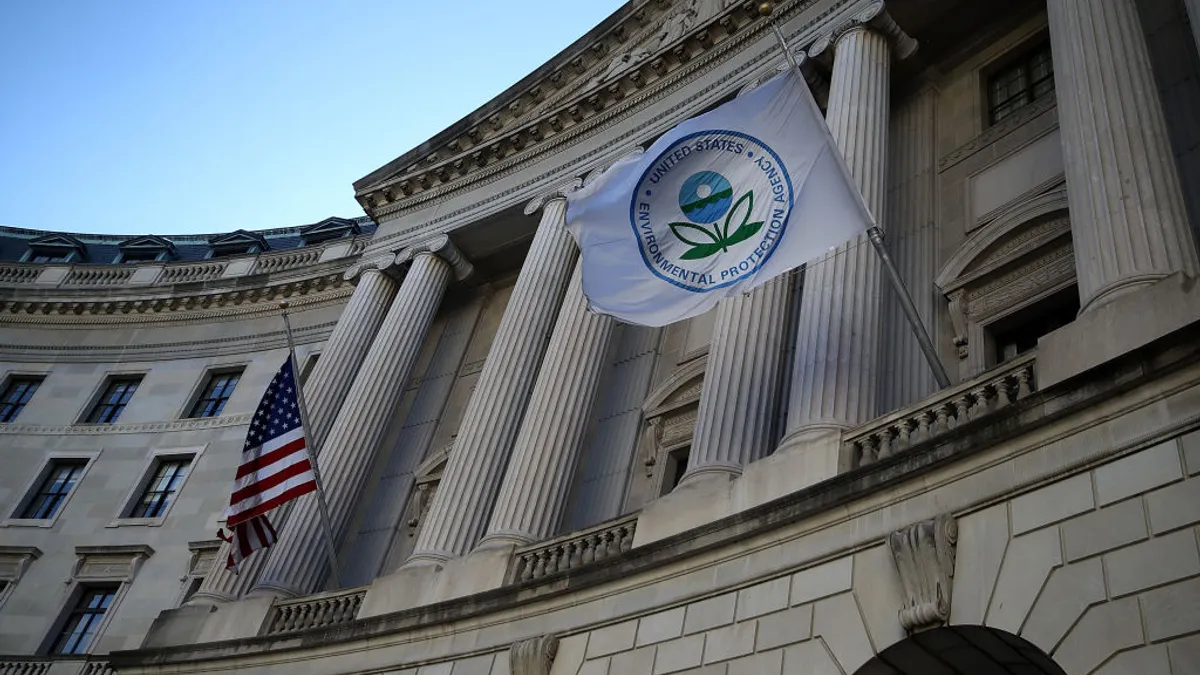Dive Brief:
- The Environmental Protection Agency announced more than $15 million in research grants last week to study and reduce the impact of "forever chemicals" on U.S. farmland and food supply.
- Ten institutions received funding to collect data on how per-and polyfluoroalkyl substances, or PFAS, contaminate crops and livestock. The research projects will also explore strategies to reduce PFAS exposure.
- The grants come as EPA faces a lawsuit from a group of farmers for allegedly failing to regulate PFAS levels in biosolid fertilizer, a sludge-like byproduct of the wastewater treatment process once touted as a low-cost and sustainable method to boost crop yields.
Dive Insight:
While it's unclear the extent of PFAS contamination on U.S. farmland, as much as 20% of agricultural land could be polluted by "forever chemicals," according to the Environmental Working Group, a D.C.-based watchdog organization.
As states like Maine and Michigan take the issue more seriously by expanding testing and passing new regulation, a number of farms have also had their operations unexpectedly suspended after testing revealed high PFAS levels.
"Forever chemicals" are linked to a myriad of health problems in humans, including increased cancer risk and developmental effects in children. PFAS also pose a risk to livestock operations if contaminated feed is given to animals — a group of Texas farmers is suing the EPA, saying their animals died after "forever chemical" exposure.
The EPA in April took the historic step to categorize two types of PFAS as hazardous substances, allowing the agency to hold polluters more accountable. The rule is targeted at PFAS manufacturers or industrial facilities most responsible for contamination, not farmers or other consumers who may unknowingly spread the chemicals.
The $15 million in EPA grants will support research into how "forever chemicals" accumulate in crops and livestock; the effects of biosolids, compost and irrigation water on PFAS plant uptake; and strategies to reduce the risks of PFAS contamination in the food supply.
“Farming communities are the lifeblood of this nation,” Christopher Frey, assistant administrator for EPA’s Office of Research and Development, said in a statement. “The research supported by these grants will increase our knowledge of how PFAS is impacting our farmlands and food supply and help ensure our farming communities stay viable for years to come.”











